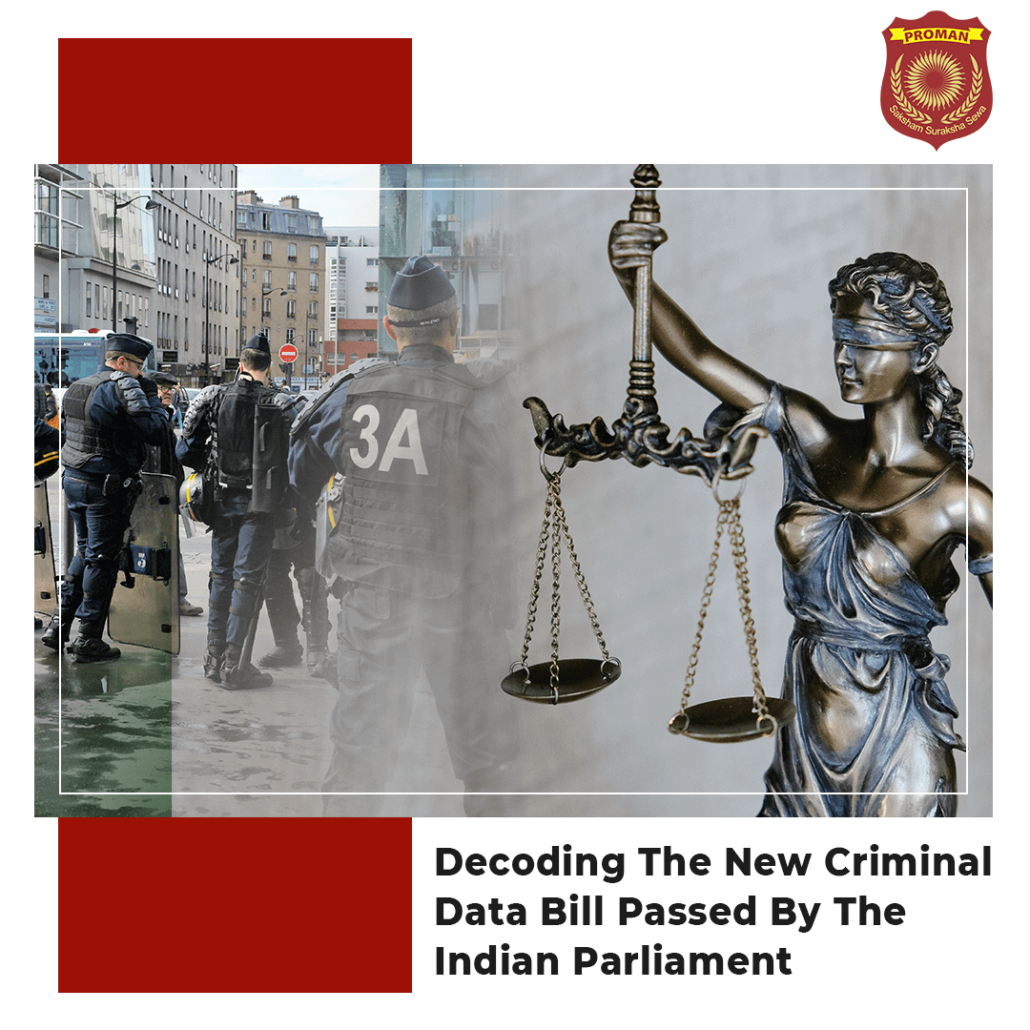

The Indian Government has finally tabled and passed the Criminal Data Bill in 2022 in Lok Sabha. Many protests from the opposition party have labeled it unconstitutional and have voted against it. This law allows the prison and police authorities to collect impressions of palm prints, fingers, footprints, retina and iris scans, biological samples, and physical analysis. They can also gather information about various behavioral attributes like handwriting, signatures, and other examinations mentioned in Section 53A or 53 of the Code of Criminal Procedure in 1973.
What does the New Criminal Data Bill suggest?
The bill applies provisions to the people held by any preventive detention law. The NCRB or National Crime Records Bureau is the repository of the biological and physical samples, handwriting, and signature data; the Government has preserved this information for the past 75 years. The bill has also authorized taking strict measures against the convicts or other people for the criminals’ investigation and identification.
Any police personnel, including the constable’s head, are authorized to record the measurements. It will also allow NCRB to share the records with the other law enforcement agencies. Honorable Home Minister of State Mr. Ajay Mishra has introduced the bill. The new criminal data bill also removes the condition of an offense, punishable by one year of imprisonment or more for the measurements to be taken.
By taking biological samples and analyzing them, the information can extend to brain mapping and narco analysis. The current bill will empower the police force and the court to take necessary measures against persons or suspects involved in a case or who are under trial due to any illegal activity. This new bill has replaced the Identification of Prisoners Act of 1920.
Advantages of the New Criminal Data Bill
Let us now take a quick look into the advantages of the bill.
- With the help of this bill, data tracking will not be a problem anymore. This data tracking facility will ensure that the investigators and police remain ahead of the criminals.
- The authorities will never collect the detainees’ biometric data involved in any political rally if they were detained against any agitation participation.
- The data collected will remain completely safe and secure with no data leakage.
- The Government will ensure there are no loopholes present in the new criminal data bill that will lead to human rights and privacy violations.
- Having all the above data of an individual in a digital format at a central level will make the accused or convict’s recognition easier for the authorities. It is considered one of the most progressive steps in recent times.
Disadvantages of the new Criminal Data Bill
It is now time to check out the drawbacks of this bill.
· According to the opposition, this is a Prisoners Act of 1920 derogation, where only finger and footprint impressions are allowed.
· The bill is a violation of Article 21 of the Constitution.
End Takeaway
So this is all about the new criminal data bill passed by the Indian parliament this year. With the help of digital data tracking and storage, officials can record the data and check it afterward for their investigations.
